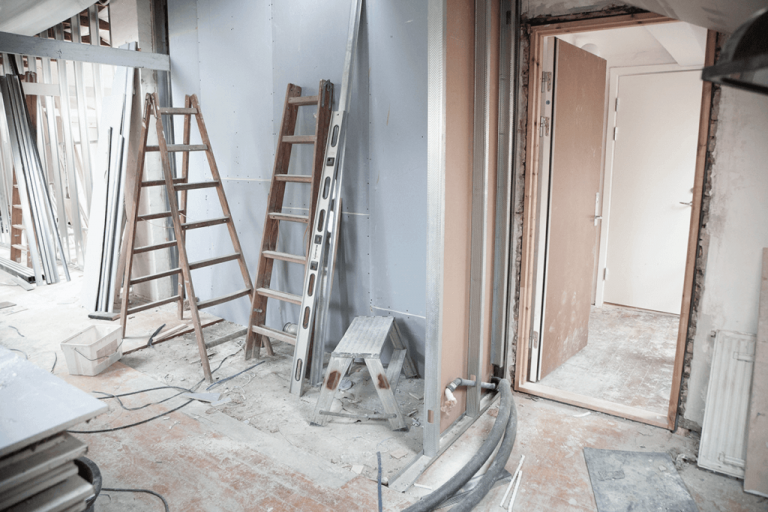If you want to renovate a property, some big decisions are needed, particularly if you are looking to build or extend. Questions to ask may include ‘Should you use the same materials as the existing building? Or is it a good idea to consider different materials?’ After all, your choice of building materials can enhance the appearance and performance of your project.
With an increasing range of materials available, renovating buildings or adding extensions that improve moisture management and thermal performance is possible. Choosing modern construction methods or the many heritage materials or combining both will depend on your project.
Heritage materials such as oak, clay tiles and lead offer the potential to use materials incorporated in the existing building, perhaps in a modern contrasting design, to create a distinct but linked addition to your home.
We look from the bottom up at the many construction materials a home renovator should consider for their build. We are starting below ground.
Steel
Steel is the modern replacement for cast iron and has been the primary choice for structural steel since the end of the 19th century. Reinforcing mesh has a wide variety of applications, primarily supporting concrete foundations for home renovations. Steel rebar ties will also be used for supporting wall structure and concrete or brickwork, particularly in areas of high ground movement. With a similar thermal expansion coefficient, concrete will contract and expand simultaneously with the steel to improve the strength of foundations and other applications. Home renovators can also rely on steel to reinforce other concrete areas such as driveways and garden groundwork. Steel reinforcing mesh and rebar ties can also look pretty good in a modern or contemporary home as decorative pieces. Construction steel generally must be fireproofed.
Carbon Fiber
With a higher tensile strength than most other materials, it is used to improve the stability of masonry, plastics, and wood. Its exceptional high tensile strength may be required to reinforce concrete that will be put under extreme strain, being around five times stronger than steel.
Concrete
Concrete is a mix of sand, aggregate, and water. The ratio of each determines its properties. Concrete is exceptionally versatile, and many home renovations require concrete at some point. Concrete, when combined with reinforcement, is the obvious choice for many building foundations and base flooring. Concrete can withstand load and contact with ground soil. It is great for sustainable architecture.
Wood
One of the older construction materials, wood, offers good insulation and is a natural resource readily available through sustainable forestry. It has been used in construction for thousands of years and can last for hundreds in use when appropriately maintained, making it an ideal home renovating material.
Masonry
Masonry consists of individual units bound together with mortar. The most common being concrete blocks which are used to create internal and external walls. Concrete blocks may require the use of vertical steel reinforcing rebars, especially for load-bearing structures.
Plaster
A layer of plaster will provide a protective coating for both interior and exterior walls and be used for decorative features. Plaster can be formulated to provide fireproofing properties which may be a consideration for some home renovators.
We have looked at material choices for construction, but home renovators can also consider using the materials for their decorative appeal. A concrete floor with various finishes and textures can create flooring for both indoor and outdoor spaces. Reinforcing mesh and rebar can create structures and intricate decorative features both indoors and out, from practical fencing to a unique art piece that gets better with age.
Now you have chosen your materials, here are some tips to help you choose the appropriate construction suppliers for these home projects. That way, you can ensure you can get everything you need for your project. And while you are at it, go ahead and get the best water softener for your home.

